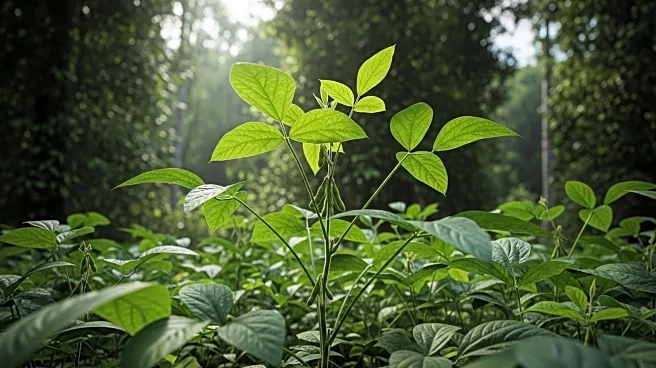What is the story about?
What's Happening?
A judge in Brazil has issued an injunction suspending the country's competition watchdog, CADE, from halting the Amazon Soy Moratorium. The moratorium, established in 2006, aims to protect the Amazon rainforest by ensuring soy production occurs only on existing agricultural land. CADE had ordered traders to cease the agreement, citing concerns over information sharing among companies. The decision faced backlash from environmental groups and Brazil's Ministry of Environment and Climate Change. Judge Adverci Rates sided with Abiove, the Brazilian Association of Vegetable Oil Industries, to suspend CADE's decision until an appeal is considered. The moratorium has been credited with reducing soy-related deforestation while increasing Amazonian soy production by 400%.
Why It's Important?
The suspension of CADE's decision is significant for environmental conservation efforts in the Amazon. The soy moratorium has been a key model for private sector conservation, preventing deforestation and protecting biodiversity. The judge's ruling supports sustainable development and highlights the importance of collaborative environmental policies. The decision also underscores the tension between economic interests and environmental protection, with potential implications for global trade and conservation strategies.
What's Next?
The case will proceed to a panel at CADE for further review, where the appeal from Abiove will be considered. The outcome could influence future conservation policies and trade agreements related to the Amazon. Stakeholders, including environmental groups and government agencies, will likely continue to advocate for the moratorium's preservation. The decision may also prompt discussions on balancing economic growth with environmental sustainability.
Beyond the Headlines
The case highlights the ethical and legal dimensions of conservation efforts, emphasizing the need for transparent and inclusive decision-making processes. The moratorium's success demonstrates the potential for private sector initiatives to contribute to global environmental goals. Long-term shifts in agricultural practices and trade policies could be influenced by the outcome of this legal battle.















